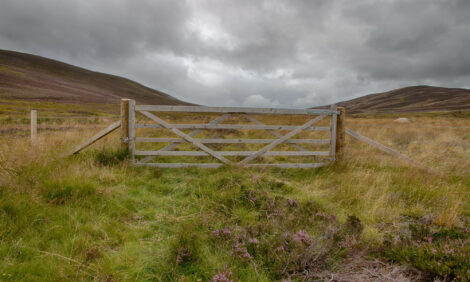



What Are Priorities for Future Sustainable Food Production?
ANALYSIS - Making research in agriculture and the agri-food sector a priority, promoting innovation and improving the exchange of knowledge are going to be essential in developing food production to feed a growing global population.These are the basic targets of a consultation paper that has been published by the European Commission looking at how science and innovation can help the EU ensure safe, nutritious, sufficient and sustainable food globally.
The consultation paper is linked to the theme at this year's Universal Exhibition (Expo Milano 2015) "Feeding the Planet, Energy for Life".
The 2015 World Expo, which takes place from 1 May to 31 October in Milan, Italy will see more than 145 countries and international organisations take part attracting around 20 million visitors are expected.
It aims to go beyond cultural activities and open a real political debate on global food security and sustainability.
The paper The Role of Research in Global Food and Nutrition Security, launched in Brussels by Tibor Navracsics, Commissioner for Education, Culture, Youth and Sport, says that there is unlikely to be a single or easy solution to tackling food and nutrition security.
Where, historically global food production has outpaced demand, this outpacing is now slowing because of supply and demand issues.
People are demanding more and diverse food and the growth in yields and production have reached a plateau.
There are now issues competing with food production that also have to be addressed including competition for land. Water and other natural resources, climate change and the question of reducing the environmental impact of agriculture including greenhouse gas emissions.
This will all require innovative farming methods and extensive research, the discussion document says.
Commissioner Navracsics said: "The European Union has a vital role to play in tackling the challenges associated with food and nutrition security and sustainability.
“Expo 2015 offers us a great opportunity to showcase what the EU is already doing in this field.
“I hope it will also breathe new life into our efforts and further foster international collaboration. I commend the work of the Joint Research Centre and look forward to working on these issues closely with my colleagues, in particular my fellow Commissioners in charge of agriculture, health, research, environment and development."
The former agriculture commissioner Franz Fischler, who is Chairman of the Expo 2015 EU Scientific Steering Committee, said: “I believe that science and innovation are crucial if we are to guarantee access to safe and nutritious food for all, produced in a sustainable way.
“We have worked hard to ensure that Expo 2015 has a strong scientific dimension. I hope that the consultation and the discussion paper will steer a global debate."
The consultation will underpin the debate on a future research agenda to help tackle global food and nutrition security challenges.
The document looks at how to improve public health through nutrition and provide healthy and sustainable consumption as well as increasing food safety and quality.
It looks at the need to reduce losses and waste by ensuring a more efficient food chain.
It adds that there is a need to manage the land for all ecosystem services providing sustainable rural development and to increase agricultural outputs sustainably through sustainable intensification.
The document says that to achieve this there is a need also to understand food markets in an increasingly globalised food system and increase equity in the food system.
The paper from the EU’s Scientific Steering Committee wants to set an agenda that provides foresight and research into the future.
It says that multiple goals will have to be addressed to stimulate interdisciplinary and strategic research and action.
This will all require investment and ensuring that the research is aligned – a role at which the European Union can be at the forefront.
However, the research will have to be converted into innovation and practice and the public must at all times be kept informed and educated on the research and innovation.
The discussion paper says that there is scope for the further development of mechanisms for enhancing research-into-use, through:
- Developing research prioritisation to ensure that knowledge is generated across the complex global agri-food system that leads to the most positive impacts for the health of the public, environment and economy.
- Developing instruments for aligning complex research challenges across complex societal needs that change across space (within and between member states and beyond).
- Developing a sophisticated and inclusive innovation culture building on the European Innovation Partnerships, within Europe as well as beyond (e.g. in Africa).
- Facilitating a sustainable bioeconomy and sharing related science and institutional knowledge internationally.
- Developing channels of communication and knowledge exchange that are inclusive and respectful of cultural complexity.
- Developing models of governance for delivering sustainable agriculture and nutrition from local to supra-national scales.






